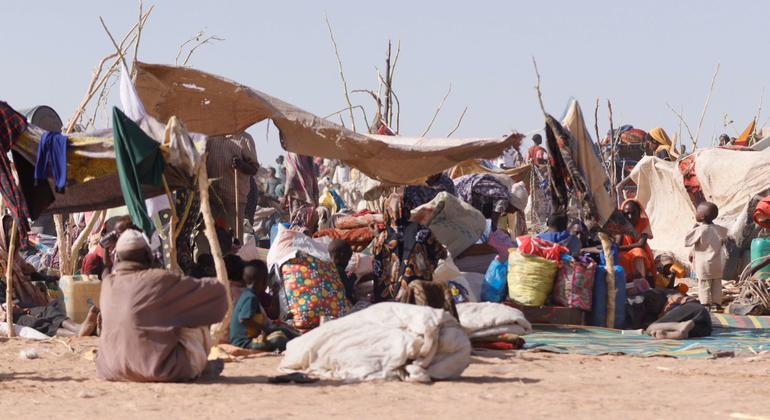The situation in El Fasher, the capital of North Darfur, has dramatically deteriorated, leaving hundreds of thousands of people trapped in a cycle of hunger, violence, and armed conflict. UN agencies have reported that systematic attacks against civilians have been a regular occurrence, demanding immediate and sustained humanitarian access. The World Food Programme (WFP) has characterized this crisis as the most severe globally, with 25 million people—half of Sudan’s population—at risk of acute hunger.
For more than a year, El Fasher has been under siege by the Rapid Support Forces (RSF), making it nearly impossible for humanitarian aid to reach those who need it most. Amid this desperation, residents have begun to feed on fodder and leftover food, while community kitchens have collapsed. Additionally, the prices of basic items such as sorghum and flour have risen alarmingly. Violence and looting have also intensified, further exacerbating the crisis.
Those who managed to escape the city have sought refuge in the Tawila displacement camp, which currently houses around 400,000 people in extremely precarious conditions. WFP rations, including staple foods and energy biscuits, constitute the only sustenance for many of these displaced individuals.
Reports of violence are alarming. Recent RSF attacks have left at least 57 civilians dead in a single incident, including 40 internally displaced persons. Between January and June of this year, the Abu Shouk camp experienced at least 16 attacks, resulting in 212 fatalities and 111 injuries. This situation has led the UN High Commissioner for Human Rights to describe the context in El Fasher as “unacceptable.”
Moreover, the possibility of ethnic persecution has become an urgent concern, as various rebel forces seek to control the region. Witnesses have documented serious human rights violations, including killings and enforced disappearances. High Commissioner Volker Türk has called on all parties involved to take immediate action to protect civilians and to allow safe exits for those wishing to leave conflict zones.
The WFP has announced that it has trucks ready to deliver food aid but demands security guarantees to operate. While the agency is already assisting over four million people in Sudan, it warns that progress in the fight against hunger is fragile and has requested $645 million from the international community to maintain its operations over the next six months. Without these funds and guaranteed humanitarian access, millions of people will continue to teeter on the brink of starvation.
Referrer: MiMub in Spanish











